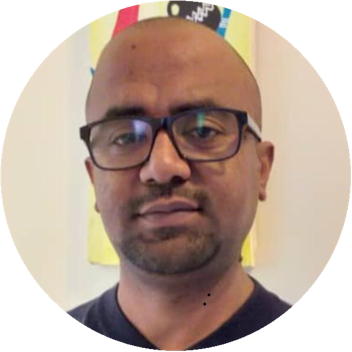EU-Ethiopia: Democratising Ethiopia Together, too?


Image: Zemelak Ayele
Hanging on the building in Addis Ababa that serves as the main office of the European Union’s delegation to Ethiopia there is a big billboard on which is written ‘EU-Ethiopia: Developing Ethiopia together’. This seems to signify that the EU is among Ethiopia’s most reliable development partners. It provides the country each year an average of €160 million in development assistance, a significant portion of which goes towards activities that are linked to democratisation. It is not the aim of this op-ed to evaluate whether the EU’s previous development assistance has brought a significant dividend in terms of promoting democracy in Ethiopia. Rather, its purpose is to highlight the fact that Ethiopia is currently at political crossroads after 27 years of authoritarian rule under the Ethiopian Peoples’ Revolutionary Democratic Party (EPRDF) and to point out the role that the EU and other global actors can play to make this transition a success.
Divisions within the ruling party, which were in part precipitated by three years of popular protests, forced former Prime Minister Haile Mariam Desalegn to resign, paving the way for Abiy Ahmed to assume the premiership in April 2018. Within a year of assuming power, the new Prime Minister oversaw the introduction of several reforms that are meant to move the country from an authoritarian rule to a democratic system. Several draconical laws, including the civil society, the media, and the antiterrorism laws which were previously used to prosecute those who challenged the ruling party’s authoritarian rule, have been revised or are undergoing revision. Now there is a palpable sense of freedom in the country, in that there is a reduced fear of reprisals from the government for one’s political statements or deeds. This can be seen from the fact that different ideas are discussed and debated in print and mass media, many of which are unflattering of the government.
The transition to democracy is far from complete. In fact, it is facing multiple challenges, such as inter-communal conflicts and widespread breakdown of law and order in different parts of the country. These are posing two major threats to democratic transition in Ethiopia. First, there is a fear that the government may use the security situation of the country as an excuse to revert back to authoritarianism. The fear is not unjustified, since in the past real and/or imagined security threats have been used to rationalise authoritarian actions. Secondly, the security situation is creating uncertainty as to whether the May 2020 national elections would take place on schedule, which many people view as a litmus test to prove whether Ethiopia is indeed transitioning to a democratic rule. The Prime Minister has on several occasions averred that the elections will take place as per the timetable. However, a growing number of people are voicing their concerns on whether the elections, conducted under such circumstances, would be free and fair.
It goes without saying that a democratic transition should be principally an outcome of ‘a domestic political process’ and, thus, the different political groups in Ethiopia bear the principal responsibility of making sure that this transition is a success. However, such a transition can seldom be an exclusively domestic matter. Western democracies view ‘democracy promotion’ as an important foreign policy goal and use international organisations such as the EU to influence domestic political processes in developing countries like Ethiopia. Hence, the EU, being Ethiopia’s key development partner, can, and is likely to seek and attempt to positively influence the transition taking place in Ethiopia. It can do so financially (among other means), as well as by sending an elections observer mission should the May 2020 elections be held according to schedule. It can even play a more important role if the May 2020 elections are postponed, since the postponement would certainly cause a major constitutional crisis that could be settled only through negotiations and compromises among the different political groups of the country. This clearly requires an independent deal broker, and the EU can play a vital role in this respect.
However, in the past, reports and statements from EU delegates on elections and other political issues in Ethiopia did not sit well, especially with the government. For instance, the EU election observation mission (EU-EOM) report and statements on Ethiopia’s 2005 and 2010 elections, which were critical of the government, were not well received by the latter. Hence, Meles Zenawi, the late Ethiopian Prime Minister, personally penned down (using pseudo name) a long letter to the Editor of Ethiopian Herald, an English weekly, lambasting the reports and statements of the EU-EOM, especially that of Ana Gomes, a Portuguese member of the EU Parliament and the then head of the EU-EOM. He also dismissed the EU-EOM’s report on the 2010 elections as ‘just the view of some Western neo-liberals who [were] unhappy’ with the electoral success of his party. The situation went from bad to worse when the Ethiopian government refused to invite the EU to send election observation mission for the 2015 elections.
It should be stressed that the current political situation in Ethiopia is unlike any previous time. The country is facing unprecedented political challenges and the transition needs to be handled very delicately. The different political groups in the country are divided on almost every political issue. If mishandled, the transition will not only fail, but is also likely to result in a serious political and social catastrophe. Global actors such as the EU have immense potential to assist Ethiopia achieve a smooth transition to democracy. Yet, a single misstep on their part can also raze the whole process. It is thus paramount that the EU, and other global actors, treat the political transition in Ethiopia very adroitly. They should focus on helping to build consensus among the different political groups in the country, rather pushing a specific point of view, regardless how best intentioned. It is especially vital that they not only act impartially but also be perceived, by all political groups, to be acting impartially.
 | Zemelak Ayitenew Ayele is the Director of the Centre for Federalism and Governance Studies of Addis Ababa University. He is also an extra-ordinary associate professor at the Dullah Omar Institute of the University of the Western Cape. His research interest include federalism, local government systems and electoral democracy in Africa. |
Citation
This content is licensed under a Creative Commons Attribution 4.0 International license except for third-party materials or where otherwise noted.



![[IT] Between exit and disintegration: devolution e relazioni intergovernative nel Regno Unito dopo Brexit](https://webassets.eurac.edu/31538/1599754982-fred-moon-swjav6impm0-unsplashresized-2.jpg?w=425&h=288&fit=crop&crop=focalpoint&fp-x=0.5&fp-y=0.5&auto=[format,compress]&cs=origin&dpr=1)



